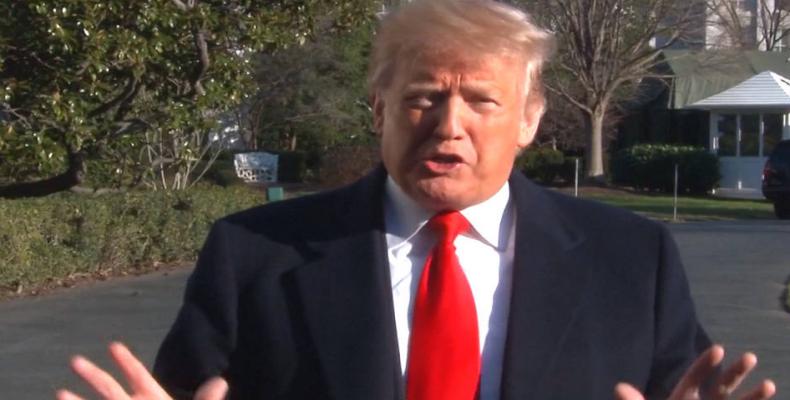Washington, January 7 (RHC)-- In the United States, the partial government shutdown is now in its third week as the impasse over President Donald Trump’s demand for $5 billion in border wall funding showed no signs of abating over the weekend.
On Sunday, Trump threatened to call a national emergency if no agreement is made. Democratic lawmakers swiftly condemned the idea, calling into question the legality of the move. Chair of the House Intelligence Committee Adam Schiff said: “If Harry Truman couldn’t nationalize the steel industry during wartime, this president doesn’t have the power to declare an emergency and build a multibillion-dollar wall on the border.”
Over the weekend, Trump said he’d push for the construction of a steel barrier instead of concrete, presenting the idea as a compromise for Democrats. Trump also repeated the idea that Mexico would pay for the wall through the new U.S.-Mexico-Canada (USMCA) trade deal, which would create billions in revenue for the United States. The USCMA has yet to be ratified by Congress.
Federal agencies have been ordered to suspend planned pay raises for top administration officials amid the ongoing shutdown. The raises had been set to go into effect on Sunday, after a long-standing pay freeze for senior officials lapsed. Eight hundred thousand federal workers have either been furloughed or have been working without pay since the government shutdown started. The 380,000 furloughed workers will not receive back pay.
Donald Trump threatens to call national emergency as shutdown continues

Related Articles
Commentaries
MAKE A COMMENT
All fields requiredMore Views
- New York doctor fired for rejecting Zionist propaganda, defending resistance
- Artistic swimmers prepare for continental competition
- Russian minister says BRICS to establish digital payment system for members
- President Nicolas Maduro rejects Marco Rubio's threats against Venezuela
- Ibero-American Criminal Sciences event comes to a close in Cuba

